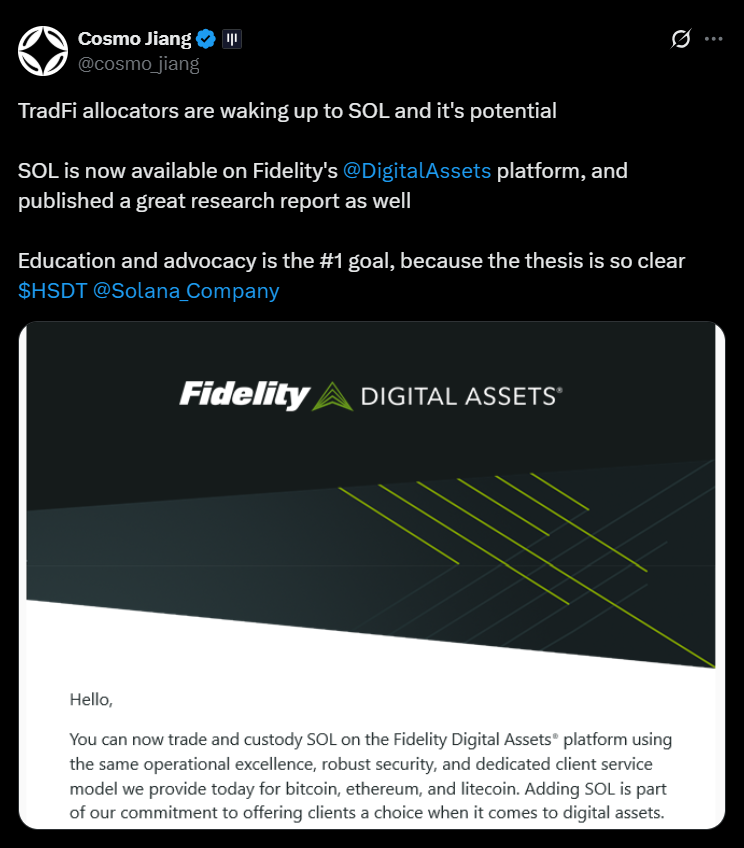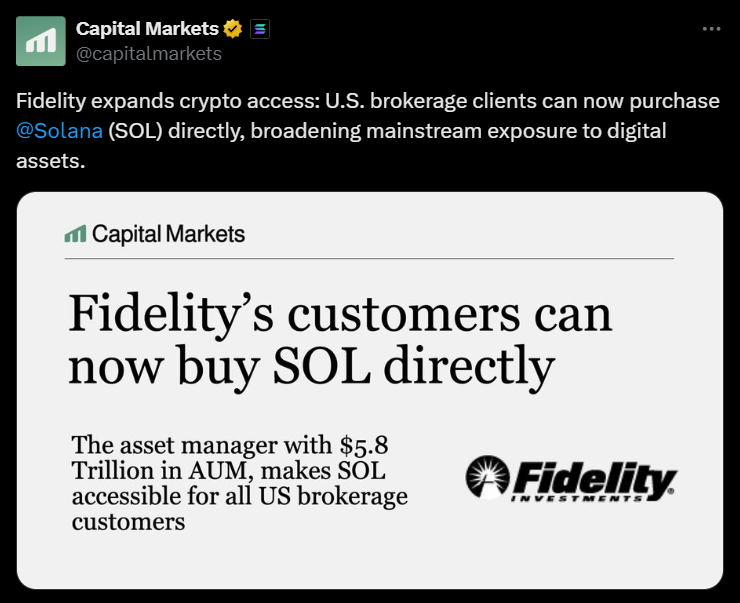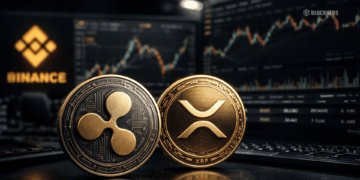- Fidelity adds Solana trading, opening access to retail, institutional, and IRA clients.
- SOL market cap tops $104B, with developers pushing for tokenized real-world assets.
- Tether’s stablecoins launch on Solana, expanding its liquidity and DeFi footprint.
Fidelity has officially added Solana (SOL) trading across its retail and institutional platforms, marking another major step toward mainstream crypto integration. The new support extends to Fidelity Crypto, Crypto for IRAs, Wealth Manager accounts, and Fidelity Digital Assets, allowing a wide range of clients to buy, sell, and hold SOL.

A company spokesperson emphasized that this move aligns with Fidelity’s “decade-long commitment” to building digital asset infrastructure comparable to traditional markets. The firm’s addition of Solana reflects growing investor appetite for blockchain-based opportunities and reinforces crypto’s shift from speculative trading toward a legitimate investment category.
Solana’s Expanding Institutional Appeal
With a market cap exceeding $104 billion, Solana ranks as the sixth-largest cryptocurrency, attracting sustained institutional attention. Its high-speed, low-cost network has positioned it as a key player in tokenized real-world assets (RWAs) — a sector aiming to bridge blockchain and traditional finance.
Developers envision Solana as the foundation for the “internet capital markets”, enabling the trading of tokenized stocks, money market funds, stablecoins, and collectibles. This expansion aligns with Wall Street’s gradual move toward 24/7 global trading, something U.S. regulators have already begun to explore.

Stablecoin Growth and RWA Integration
Recent launches of Tether’s USDt and Tether Gold (XAUT) on Solana further highlight the network’s growing influence in cross-chain liquidity. By integrating tokenized assets, Solana is strengthening its position as a DeFi infrastructure hub, providing traders with deeper stablecoin liquidity and reduced volatility risks.
The combination of institutional adoption and cross-chain tokenization could position Solana as one of the most critical blockchain ecosystems in the next market cycle — rivaling both Ethereum and traditional financial institutions in speed and accessibility.














